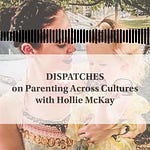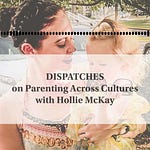This is part two of questions and answers with Hollie McKay from Kabul, Afghanistan.
r.d.olson
What are some of the financial and economic hardships the Afghanistan civilians are currently experiencing?
Well, that's a really loaded question. I think in every single sector there is just a huge economic and humanitarian crisis. One of the most flagrant is the health situation. In the health sector, most of the NGO's that were here were foreigners; and they all disappeared on August 15th when the Taliban came in. So now you have a situation where you have basically a public health system, now run by the Taliban, which has no money and that was very rundown before the Taliban even came in because of corruption (during the previous government) and a multitude of other things. Now it's just an absolute disaster zone. It's really the regular common Afghans are the ones who suffer from that.
In addition, there is just no money in the country. To get money out, people have to line up for days. They're very limited in how much they can take out per week. And mind you, people still haven't got their salaries. They haven't got salaries even from the previous government. So, this has been months and months now without being paid and people are still sort of expected to show up to work; which naturally, has a drop off rate.
So, it's just it's an absolute quagmire all around and it's only going to get worse as the winter progresses.
marivelasco09
How have the children and women been since the whole transition as time has passed? Same or worse? Love what you are doing.
Thank you Marie.
So yeah, the situation for women, especially in the cities like Kabul, has become pretty dying for them, especially ones that were very much used to working. They were used to going to school secondary education and all the universities in the public sector remain closed. That has been the case now for almost four months. So, it's pretty disheartening. They really are in a holding pattern in many cases.
But on the flip side of that, the lives of rural women, which often don't make the media cycle, and they should; their lives won't change a great deal. Most of those women generally work in labor jobs as well; and they will continue to do that.
And generally their lives in some ways, you could argue, may actually improve on the basis that the security situation isn't what it was anymore. There aren't the level of attacks. The warfare that was happening (is gone) so their lives will either sort of stay the same, or possibly become a little bit more stable.
whitepinechiropractic
Are they allowing kites still or are those being taken away again?
So, one of the things that the Taliban banned (in 1996) was kite flying. They banned a lot of the entertainment things. But that hasn't happened this time. Friday which is the day off in Afghanistan. You can see a lot of kites still in the sky. It's a bigger thing during the summer and the spring.
But kites are, so far, very much allowed. Children, everywhere you go, are trying to fly their kites off roofs of buildings, and it's still very much an Afghan tradition.
gregcarron
Are the rumors or reports of any genocide events for the Hazaras in the north/east (Mazar & Herat) now that the Taliban is back?
So again, the Hazaras were persecuted under the last Taliban regime, and of course they are Shia which is a minority. Afghanistan is mostly Sunni. But this time, I think the Taliban are going to greater lengths to protect them in many ways; or at least leave them alone.
I just spent a lot of time with the very big Hazara community in the north and Herat last week. They pretty much echoed that that things for them weren't what they were in the 1990s.
But of course, they now have the threat of ISIS-K or Daesh, so that is something that is a big concern to the Hazara community.
carrington799
Do you think the winter will bring a large humanitarian disaster? And if so, will the Taliban allow anyone to help?
Right, so the second part of that is it's not the Taliban that isn't allowing people to help. The Taliban wants people to help. The Taliban want the international community and the NGO’s to come. Of course, they have guidelines that that any foreigners coming in have to follow their laws and their Islamic values, which as you know, can be problematic to some. But in many cases, it's really the NGOs that are either concerned about sanctions, or concerned about safety, and having not returned to the country.
The Taliban are basically begging for help with conditions, and NGOs are having to struggle with whether to work with the Taliban or not, which is also the dilemma of most Western governments right now.
Toolndiec
Are the taliban more tolerant of women than isis k? Do you think the people of Afghanistan will ever cooperate with America again when we have to send our forces back? Stay safe, and keep up your amazing work.
I don't see any sort of immediate situation where America will come back to Afghanistan. Quite frankly, I don't see a situation where any country is going to come back to Afghanistan; especially after just decades of war. Even before the US invaded after 2001, Afghanistan was very much in a state of war for a long time. First of all, the Soviet invasion and then the US backing of the Mujahadeen to take them out during the 1980s. And then of course the situation spiraled in the 90s into a civil war until the Taliban was then elected in 1996.
So the conflict has been going on for a long time and I think if you can go back even centuries back to the British, you'll see that you know Afghans have always won. And anytime that foreigners have tried to come into the country, they have left basically with the tail between their legs after an expensive war costing a lot of blood and treasure.
I don't sort of see that scenario happening at any time soon, so hopefully, that sort of answers the question in that capacity.
OK, and then on the question about “are of Taliban more tolerant of women?”
I would definitely say so. I mean it's different. People like to lump a lot of these Islamic extremist groups together, but there are very different philosophies between the Taliban and ISIS-K. I certainly would say that ISIS-K in its actions, while certainly a very small insurgency compared to the Taliban, which is now government, that their (ISIS-K) actions are incredibly brutal.
They deliberately target whoever they can, irrespective of whether they're a child, a woman, a man; it doesn't matter to them. You could argue during the Taliban insurgency years, it sort of took a similar approach. But I would certainly say that the (present day) Taliban have a different respect for women than ISIS-K does.
phil_gard
When you see the victims and spend time with them and meet there family's how do you feel like going back home?
It's a very challenging thing. I think for a lot of journalists, we go into people's homes and into their lives and people open up and share very intimate and painful stories with us. It's hard not really being able to do anything directly to help them other than to be able to share their story.
I think that it's sort of something we call moral injury. And that's something that plagues a lot of us, and especially me as well, because I'm not the sort of person that can completely be compartmentalized in those situations. Nor do I want to be that person because I think it's very important to maintain that empathy. You need to bring that out when you are telling these stories. And I don't want to be ever a vulture that goes in and takes someone stories and just sort of publishes it and runs away.
But it's certainly even more difficult I think when you come back and you are removed from it. You have a little bit more time to reflect upon it; and often times these people are still reaching out to you and trying to get help. You’re thousands of miles away and the reality is not able to do much more than tell their story. That's something that sits with you; and it is a struggle.
gravytrain87
Is ISIS currently gaining or losing strength in Afghanistan?
Well, if you ask most Taliban officials, they will say that ISIS doesn't exist. So, there is this sort of huge whitewashing that the top and bottom echelons are trying to do. They're trying to project this image of stability, security, and safety after 20 years of war.
But the reality on the ground isn't what the Taliban's want to tell you. The reality on the ground from my experience is certainly that ISIS K is launching incredibly frequent attacks across the country. And you just never know when and how that is going to happen.
It certainly seems to me that they are gaining ground. They're taking advantage of the vacuum; and they're taking advantage of the fact that thousands of their most brutal members were all released from jail in this sort of transition period.
It's certainly something that is a concern to me, Even more concerning is the Taliban's reluctance to acknowledge what a concern it is.
Last question from jennyleematthews
In the West we handle stress by going to the spa, drinking wine and having “me time”. How do the Afghan people handle the stress and fear of living in a country controlled by the Taliban?
I think it's certainly very difficult for them. I's not a place that you go to the spa, or go to the bar, or anything like that. But Afghans are also (people for whom) family is the center of everything. In Afghanistan, most people live with their extended family. You've got usually multiple brothers living with their wives, their kids, and their parents. So, you sort of have these big houses even in very poor parts. it's still that family is absolutely everything, I think people really rely on each other. And they are constantly, you know, sort of surrounded by other people. There's always that sense of community and.
That's quite contrasted to, I think a lot of our lives in the West where people live on their own, work on their own, sort of do their own thing, and certainly have much smaller numbers of children.
Whereas in Afghanistan, family and building their family is, I think, the core. They rely upon each other to get through hardships.
That's a very good place to end. Thank you, Hollie. Thank you for the for answering more questions and we'll talk to you for more Q&A to next time we get another batch of questions.
Thank you, Dennis. I appreciate your support.
Bye.
Thanks again for your support. Follow me on Instagram and Twitter for more updates















Share this post